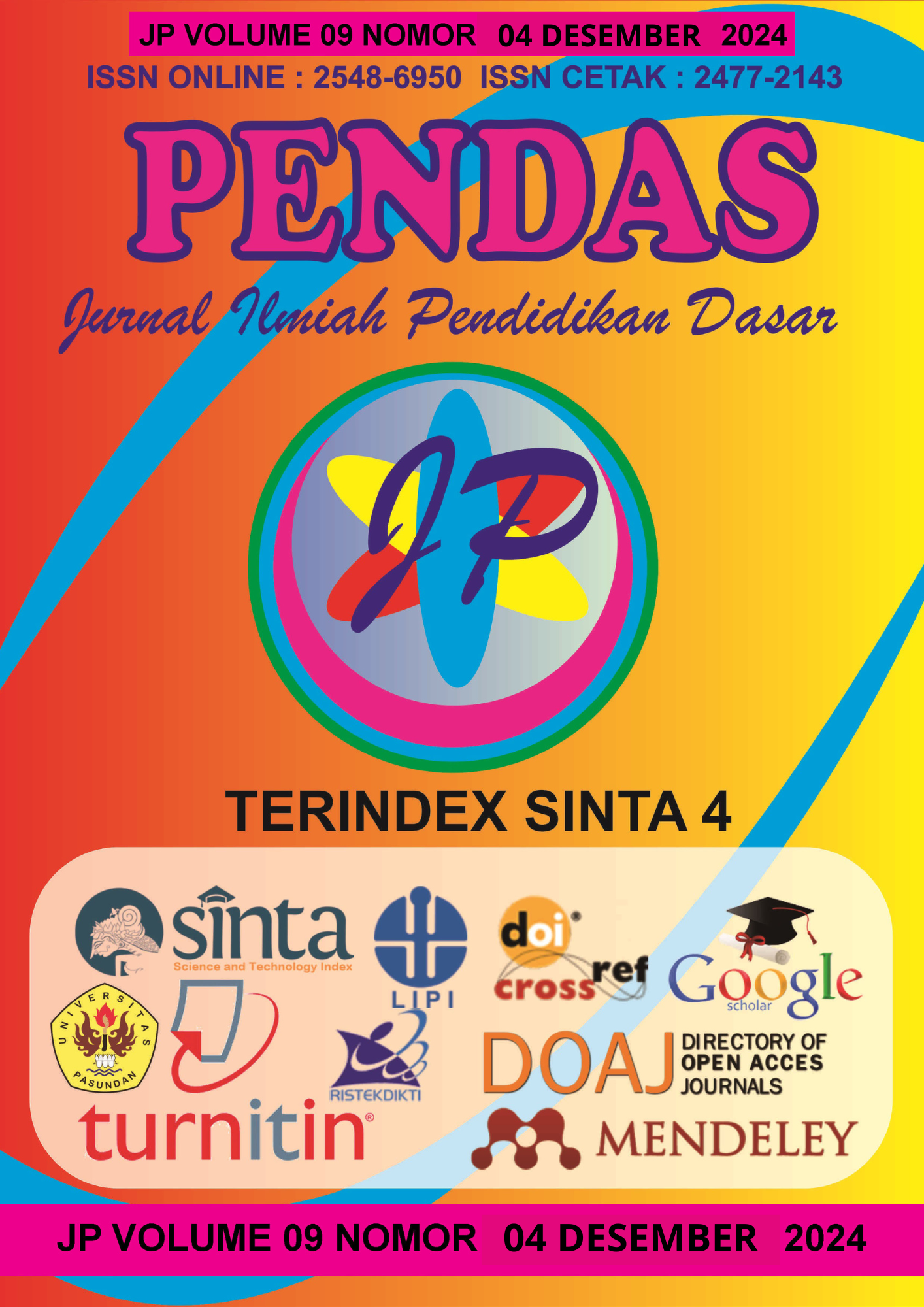ANALISIS KECERDASAN MATEMATIS PADA RASA EMPATI SISWA SEKOLAH DASAR
DOI:
https://doi.org/10.23969/jp.v9i04.32972Keywords:
Mathematical intelligence, Elementary school students, Emotional developmentAbstract
This research aims to analyze the relationship between mathematical intelligence and empathy in elementary school students. Mathematical intelligence, which is measured through students' ability to solve mathematical problems, has a significant impact on their social and emotional development, including empathy. Using a qualitative approach, this research involved students from several elementary schools in Indonesia, using mathematics test instruments and questionnaires to measure levels of empathy. The research results show that there is a positive relationship between mathematical intelligence and empathy, where students with higher mathematical abilities tend to have better levels of empathy. This research also discusses the implications of these findings for the education curriculum in elementary schools, as well as the importance of developing these two aspects simultaneously to create a more sensitive and intelligent generation.
Downloads
References
Darling-Hammond, L. (2000). Teacher quality and student achievement: A review of state policy evidence. Educational Policy Analysis Archives, 8(1).
Decety, J., & Jackson, P. L. (2004). The functional architecture of human empathy. Behavioral and Cognitive Neuroscience Reviews, 3(2), 71-100.
Fuchs, L. S., & Fuchs, D. (2002). Intervention research in mathematics: A meta-analysis. Journal of Educational Psychology, 94(3), 427-445.
Gardner, H. (1983). Frames of Mind: The Theory of Multiple Intelligences. Basic Books.
Geary, D. C. (2011). Consequences, causes, and the evolution of human cognitive development. American Psychologist, 66(2), 121-132.
Goleman, D. (1995). Emotional Intelligence: Why It Can Matter More Than IQ. Bantam Books.
Kuhlmann, M., et al. (2017). The relationship between mathematical ability and empathy in adolescents. Journal of Educational Psychology, 109(4), 515-526.
Jansen, M., & Scherer, D. (2020). The role of mathematical competence in problem-solving. Educational Studies in Mathematics, 103(3), 245-260.
Klimecki, O. M., et al. (2013). The Impact of Empathy Training on the Brain and Behavior. Social Cognitive and Affective Neuroscience.
Lee, Y. H., & Hsu, C. (2020). Cultural influences on mathematics learning. International Journal of Educational Research, 103, 101-113.
National Assessment of Educational Progress (NAEP). (2019). The Nation's Report Card: Mathematics 2019.
National Council of Teachers of Mathematics (NCTM). (2000). Principles and Standards for School Mathematics. NCTM.
OECD. (2018). The Future of Education and Skills: Education 2030. OECD Publishing.
OECD. (2019). PISA 2018 Results: What Students Know and Can Do. OECD Publishing.
PISA. (2019). PISA 2018 Results (Volume III): What School Life Means for Students’ Lives. OECD Publishing.
Plomin, R., & DeFries, J. C. (2019). Genetics and intelligence: A review. Nature Reviews Genetics, 20(1), 1-15.
Reni, T. (2020). Keterlibatan Sosial dan Empati Siswa. Jurnal Pendidikan dan Sosial, 13(1), 88-97.
Swanson, H. L., & Sachse-Lee, C. (2000). A meta-analysis of the effects of instruction on students' mathematics problem solving. Review of Educational Research, 70(3), 303-338.
World Economic Forum. (2020). The Future of Jobs Report 2020. World Economic Forum.
Vescovo, M., et al. (2020). Volunteering and Empathy: A Study of the Relationship Between Engagement in Voluntary Work and Empathy Levels. Journal of Social Psychology.
Downloads
Published
Issue
Section
License
Copyright (c) 2025 Pendas : Jurnal Ilmiah Pendidikan Dasar

This work is licensed under a Creative Commons Attribution 4.0 International License.














































